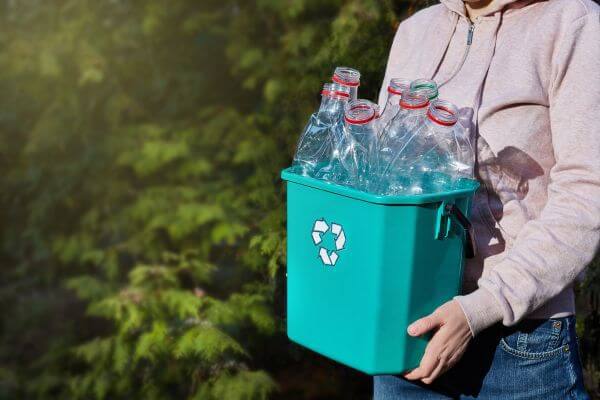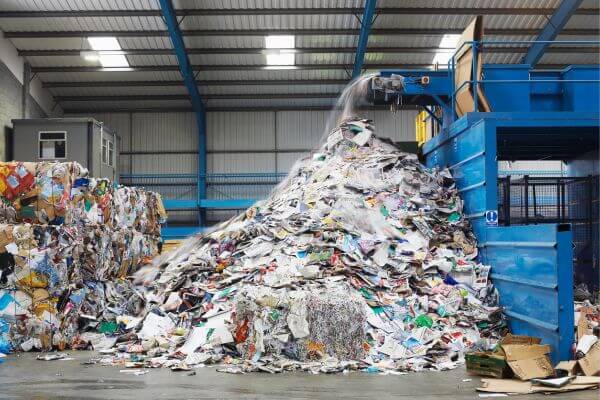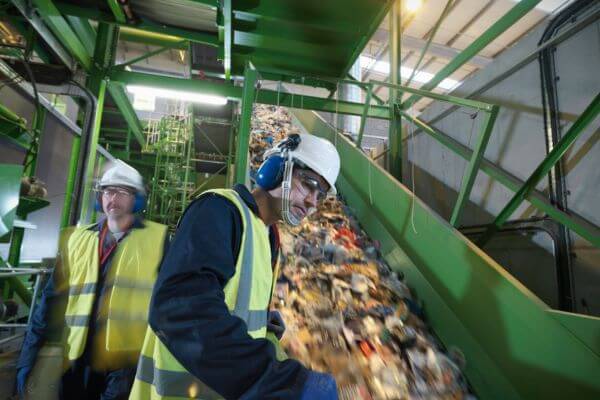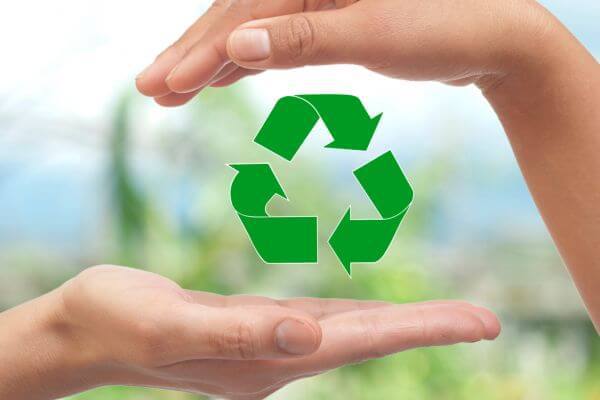In the quest for sustainability, the role of technology in revolutionizing recycling practices and promoting a circular economy has become increasingly pivotal. As the world grapples with environmental challenges, innovative technological solutions are emerging, transforming waste management and resource utilization. This article delves into the latest advancements in recycling technology and their impact on fostering a circular economy.
The concept of a circular economy is rooted in minimizing waste and maximizing resource efficiency. Technological innovations in recycling are not just about creating more efficient processes; they’re about rethinking how resources are used, reused, and optimized. From smart sorting systems to advanced biodegradable materials, technology is reshaping our approach to waste.
As we explore these technological strides, it’s crucial to understand their broader implications. These innovations are not only beneficial for the environment but also drive economic growth and support sustainable development goals. The integration of technology in recycling processes is a step towards a more sustainable and resilient future.
Tech-Driven Waste Sorting: The Future of Recycling
One of the most significant advancements in recycling technology is the development of automated waste sorting systems. These systems use sensors, robotics, and machine learning to accurately separate different types of waste materials. This automation increases the efficiency and effectiveness of recycling processes, reducing contamination and improving the quality of recycled materials.
Automated sorting technologies are not just about speed and accuracy; they also have a profound impact on labor dynamics in the recycling industry. By automating the sorting process, these technologies can reduce the need for manual labor, which is often tedious and hazardous. This shift can lead to a more skilled workforce focused on managing and maintaining these advanced systems.
The integration of Internet of Things (IoT) technology in waste management further enhances the capabilities of automated sorting systems. IoT-enabled devices can track waste streams, providing valuable data on waste composition and recycling rates. This data is crucial for optimizing recycling processes and developing more effective waste management strategies.

Biodegradable Materials: A Step Towards Zero Waste
The development of biodegradable materials represents a significant leap in recycling technology. These materials, designed to break down naturally in the environment, offer an alternative to traditional plastics that can take centuries to decompose. Biodegradable materials are made from natural substances like plant starches, making them a more sustainable option.
The use of biodegradable materials is not limited to packaging; it extends to a wide range of products, including textiles, electronics, and automotive parts. This versatility showcases the potential of these materials to replace conventional, non-degradable materials in various industries, significantly reducing environmental impact.
However, the adoption of biodegradable materials also poses challenges. There is a need for specialized recycling facilities to process these materials effectively. Additionally, educating consumers and industries about the proper disposal and recycling of biodegradable materials is crucial to ensure they don’t end up in landfills.
Smart Recycling Bins: Enhancing Consumer Engagement
Smart waste management bins are a novel technological innovation aimed at increasing consumer participation in waste management. Equipped with sensors and connected to mobile apps, these bins provide feedback on waste management habits, educating users about proper waste disposal. This interactive approach can significantly improve waste management rates.
These smart bins can also sort waste automatically, further reducing contamination in waste management streams. By making waste management more convenient and efficient, smart bins encourage more people to participate in waste management efforts, contributing to a more sustainable environment.
The data collected by smart waste management bins can be invaluable for waste management authorities. It provides insights into consumer behavior, waste patterns, and waste management efficiency. This data can be used to tailor waste management strategies and improve waste management programs.

Blockchain in Recycling: Transparency and Traceability
Blockchain technology is emerging as a powerful tool in waste management, offering transparency and traceability in the waste management chain. By creating a tamper-proof, decentralized ledger of waste management transactions, blockchain can track the journey of materials from collection to reuse.
This transparency is crucial for verifying the authenticity and quality of managed materials. It can help combat waste management fraud and ensure that materials are processed according to environmental standards. Blockchain can also facilitate the trading of waste management credits, incentivizing businesses to participate in waste management programs.
The application of blockchain in waste management also extends to consumer engagement. Consumers can trace the lifecycle of products and materials, understanding the impact of their waste management efforts. This transparency can build trust and encourage more responsible consumption and waste management habits.
3D Printing and Recycling: Creating Sustainable Solutions
3D printing technology is revolutionizing recycling by enabling the creation of products from recycled materials. This technology allows for the precise use of materials, reducing waste during the production process. 3D printers can use a variety of recycled materials, including plastics and metals, transforming waste into valuable products.
The potential of 3D printing in recycling extends to large-scale applications, such as building and construction. By using recycled materials for 3D printing, the construction industry can significantly reduce its environmental footprint. This approach not only promotes sustainability but also opens up new avenues for creative and eco-friendly construction.
However, the integration of 3D printing and recycling also presents challenges. Ensuring the quality and safety of recycled materials used in 3D printing is essential. Research and development in this area are crucial to overcoming these challenges and fully harnessing the potential of 3D printing in recycling.

AI in Waste Management: Predictive Analytics and Efficiency
Artificial Intelligence (AI) is playing a transformative role in waste management and recycling. AI algorithms can analyze vast amounts of data to predict waste generation patterns, optimize collection routes, and improve recycling processes. This predictive capability enhances the efficiency and effectiveness of waste management systems.
AI can also assist in identifying trends in waste composition, enabling waste management authorities to adapt their strategies accordingly. By predicting fluctuations in waste types and volumes, AI helps in planning resource allocation and recycling facility operations more effectively.
The use of AI in waste management is not just about operational efficiency; it also has environmental benefits. By optimizing waste collection and recycling processes, AI can reduce emissions associated with waste transportation and processing. This contributes to a lower carbon footprint for waste management activities.
Solar-Powered Recycling Plants: Harnessing Renewable Energy
The integration of solar power into recycling facilities represents a significant step towards sustainable waste management. Solar-powered recycling plants can operate with a reduced reliance on fossil fuels, lowering their environmental impact. This approach aligns with the principles of a circular economy, where sustainability is key.
Solar-powered waste processing plants not only benefit the environment but also reduce operational costs. By harnessing renewable energy, these facilities can lower their energy expenses, making waste processing more cost-effective. This economic advantage can encourage more investment in waste processing infrastructure.
The adoption of solar power in recycling also sets a precedent for other industries to follow. It demonstrates the feasibility and benefits of using renewable energy in industrial operations. This can inspire similar initiatives across various sectors, contributing to a broader shift towards sustainable practices.
Recommended for you
- EdTech: Transforming Education Through Technological Innovations
- eSports: Rise and Cultural Impact of Gaming
Innovative Recycling Technologies: Shaping a Greener Future
The continuous development of innovative sustainability technologies is essential for advancing towards a more sustainable future. These technologies not only improve sustainability processes but also contribute to the creation of a circular economy. From advanced sorting systems to new biodegradable materials, innovation is key.
The impact of these technologies goes beyond environmental benefits. They also offer economic opportunities and support social well-being. By creating more efficient and sustainable recycling processes, these innovations can drive economic growth and job creation in the green economy.
The future of recycling technology is promising, with ongoing research and development in areas like nanotechnology, biotechnology, and material science. These advancements hold the potential to further revolutionize recycling and waste management, making a significant contribution to environmental conservation and sustainability.

The integration of technology in recycling and waste management is a critical step towards achieving a sustainable and circular economy. These innovations not only enhance the efficiency of recycling processes but also contribute to environmental conservation and economic growth. The future of recycling technology is bright, with endless possibilities for further advancements.
As we continue to face global environmental challenges, the role of technology in recycling becomes increasingly important. It’s essential to support and invest in these technological innovations to ensure a sustainable future. The collaboration between industries, governments, and communities is crucial in this endeavor.
In conclusion, the advancements in recycling technology are not just about dealing with waste more effectively; they represent a shift towards a more sustainable and responsible way of living. Embracing these technologies and incorporating them into our waste management practices is imperative for preserving our planet for future generations.


